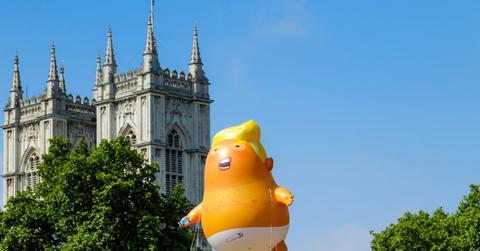
Will Donald Pull the Trump Card?: How 45 can Challenge Results
With the U.S election coming to an end on a very close margin, many people are worried that President Donald Trump may call fraud.
By Jamie RolloNov. 4 2020, Published 4:01 p.m. ET
With the U.S presidential election coming to an end on a very close margin, many people are worried that President Donald Trump may call fraud. In the past, he’s made remarks about his distrust of mail-in ballots and his fear of potential democrat-favored voting fraud. Add in the urgency he and his administration had to secure another supreme court seat, many Americans worry that things could get messy once a winner is established.
Trump has yet to confirm that he would allow for a peaceful transition of power if not reelected. Back in August, he told a crowd of supporters at a rally in Oshkosh, Wisconsin“the only way we’re going to lose this election is if the election is rigged… Remember that. That’s the only way we’re going to lose this election.”
For months the sitting president has created a mass panic over the constitutionality of safer voting methods, such as absentee ballots and mail-ins. From a citizen perspective, this is terrifying, yet his supporters agree with him. Of course, they would love for the election to be deemed fraudulent, which in turn would lead to four more years of the Trump administration. Add in supreme court backing with massive public support, you have a recipe for election disaster.
But could calling fraud be that easy for Trump?According to The Guardian, it’s not as easy as the public lets on. Voting fraud must first be challenged in local courts where conservatives have been fighting to challenge coronavirus voting amendments. In Pennsylvania, a key swing state, conservative lawyers have appealed a state supreme court decision that orders election officials to count mail-in ballots that arrive up to three days after the election.
Regardless, in order for Trump’s lawyers to claim voting fraud, they would need solid evidence that proves wrongdoing in local courts first. Depending how close the outcome is at the official end of the election, we may see some legal challenges. A similar instance happened in the 2000 presidential election when George W. Bush challenged Florida’s results. The state was originally won by Al Gore, however, those electoral points went to Bush after a recount found that he had won by a 600-vote margin, resulting in him winning the majority electoral votes.
Since the 2020 presidential election has yet to be called, we don’t know for sure what President Trump will do if he loses. Given that conservative lawyers are already challenging voting extensions in states like Pennsylvania and North Carolina, we can hypothesize that it won’t be pretty. Rest assured, however, Trump will not be able to directly bring this to the U.S supreme court before challenging results at the state level. If he does challenge results at the local and state levels, he will need substantial evidence to prove wrongdoing.

